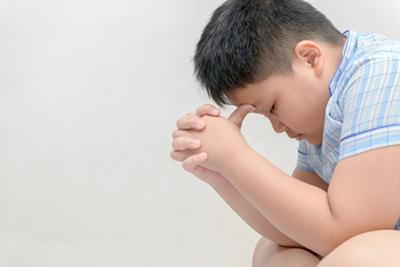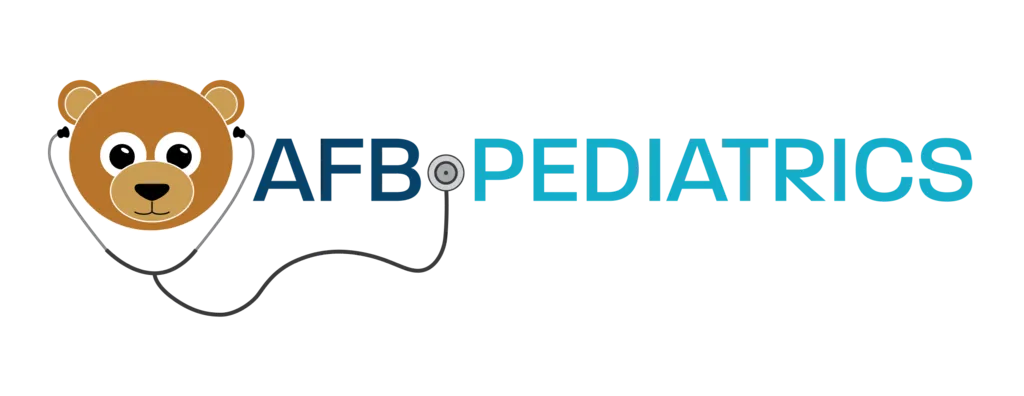Understanding Childhood Obesity: Causes, Consequences, and Prevention

- posted: Feb. 20, 2024
Childhood obesity is an epidemic in the United States. The easy availability of fast food, sugary and salty snacks, large sweet drinks, and other non-nutritious foods, keep children consuming a lot of calories. Gaming, watching TV, and staying indoors keep children from burning off the extra calories. Your pediatrician can help your child maintain a healthy weight. Dr. Aldo Bejarano at AFB Pediatrics in Pasadena, TX, provides a wide range of medical services for children, including dietary and nutritional counseling to help prevent childhood obesity.
What You Need To Know About Childhood Obesity
Obesity can have a genetic component, so if someone in your family is obese, your child may become obese too. In addition to genetics, diet and exercise play major roles in childhood obesity. If childhood obesity goes untreated, it can have some serious consequences which can continue into adulthood. Obesity can lead to:
- Heart disease
- Breathing difficulty
- Vascular disease
- Joint problems
- Chronic pain
- Depression
- Anxiety
- Social stigma
It’s important to know the recommended amount of calories a child needs. According to healthychildren.org, children should consume:
- 1000 calories, for children 2-3 years old
- 1200-1400 calories, for children 4-8 years old
- 1400-1600 calories for girls, or 1600-2000 calories for boys 9-13 years old
- 1800 calories for girls, or 2000-2400 calories for boys 14-18 years old
The quantity of calories is only part of the picture. You should also pay attention to the quality of those calories. Many snack foods contain “empty calories” which are calories that don’t contain any nutritional value. Fast foods, snacks, and high-sugar foods are examples of “empty calories.” Your child should be eating:
- Lean proteins like fish and poultry, and avoid high-fat meats like beef or pork
- Vegetables and fruits, especially with high fiber content, so your child feels full and will eat less
- Whole grains, and avoiding highly processed foods like white flour
- Low-fat dairy products, and avoiding full-fat dairy products
One of the best ways for your child, you, and your child’s pediatrician to know what your child is eating is to keep a food diary of what your child eats. A food diary can help determine which foods to cut out and which foods to increase.
Your child also needs to be burning off those calories in the form of exercise. Participating in a sport at school, or family night at the gym can help make exercising fun.
Want To Know More About Childhood Obesity?
To find out more about the causes, consequences, and prevention of childhood obesity, call Dr. Aldo Bejarano at AFB Pediatrics in Pasadena, TX. You can reach him in the office by calling (832) 386-9200, so call today.

- posted: Feb. 20, 2024
Childhood obesity is an epidemic in the United States. The easy availability of fast food, sugary and salty snacks, large sweet drinks, and other non-nutritious foods, keep children consuming a lot of calories. Gaming, watching TV, and staying indoors keep children from burning off the extra calories. Your pediatrician can help your child maintain a healthy weight. Dr. Aldo Bejarano at AFB Pediatrics in Pasadena, TX, provides a wide range of medical services for children, including dietary and nutritional counseling to help prevent childhood obesity.
What You Need To Know About Childhood Obesity
Obesity can have a genetic component, so if someone in your family is obese, your child may become obese too. In addition to genetics, diet and exercise play major roles in childhood obesity. If childhood obesity goes untreated, it can have some serious consequences which can continue into adulthood. Obesity can lead to:
- Heart disease
- Breathing difficulty
- Vascular disease
- Joint problems
- Chronic pain
- Depression
- Anxiety
- Social stigma
It’s important to know the recommended amount of calories a child needs. According to healthychildren.org, children should consume:
- 1000 calories, for children 2-3 years old
- 1200-1400 calories, for children 4-8 years old
- 1400-1600 calories for girls, or 1600-2000 calories for boys 9-13 years old
- 1800 calories for girls, or 2000-2400 calories for boys 14-18 years old
The quantity of calories is only part of the picture. You should also pay attention to the quality of those calories. Many snack foods contain “empty calories” which are calories that don’t contain any nutritional value. Fast foods, snacks, and high-sugar foods are examples of “empty calories.” Your child should be eating:
- Lean proteins like fish and poultry, and avoid high-fat meats like beef or pork
- Vegetables and fruits, especially with high fiber content, so your child feels full and will eat less
- Whole grains, and avoiding highly processed foods like white flour
- Low-fat dairy products, and avoiding full-fat dairy products
One of the best ways for your child, you, and your child’s pediatrician to know what your child is eating is to keep a food diary of what your child eats. A food diary can help determine which foods to cut out and which foods to increase.
Your child also needs to be burning off those calories in the form of exercise. Participating in a sport at school, or family night at the gym can help make exercising fun.
Want To Know More About Childhood Obesity?
To find out more about the causes, consequences, and prevention of childhood obesity, call Dr. Aldo Bejarano at AFB Pediatrics in Pasadena, TX. You can reach him in the office by calling (832) 386-9200, so call today.
Monday
8:00 am - 6:00 pm
Tuesday
8:00 am - 6:00 pm
Wednesday
8:00 am - 6:00 pm
Thursday
8:00 am - 6:00 pm
Friday
8:00 am - 6:00 pm
Saturday
Closed
Sunday
Closed
